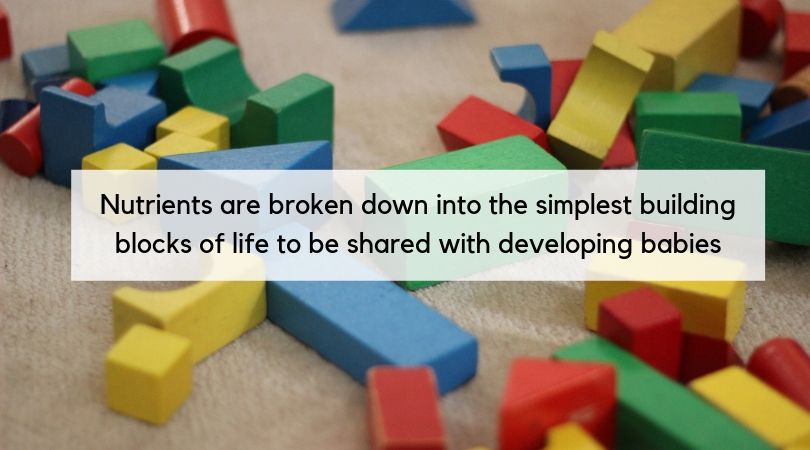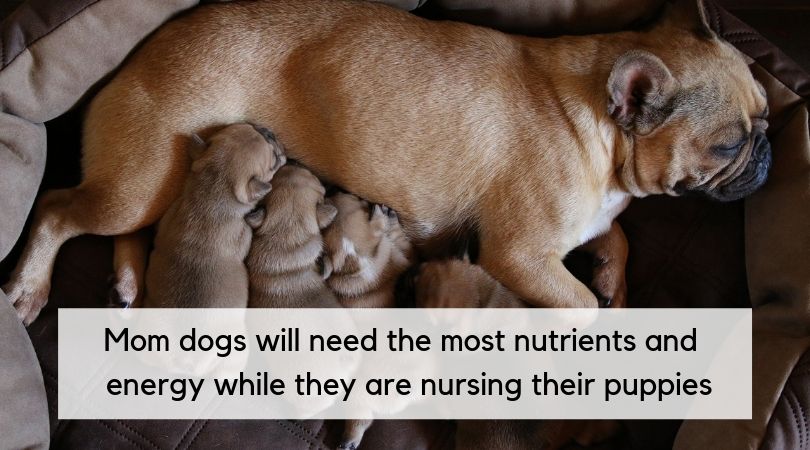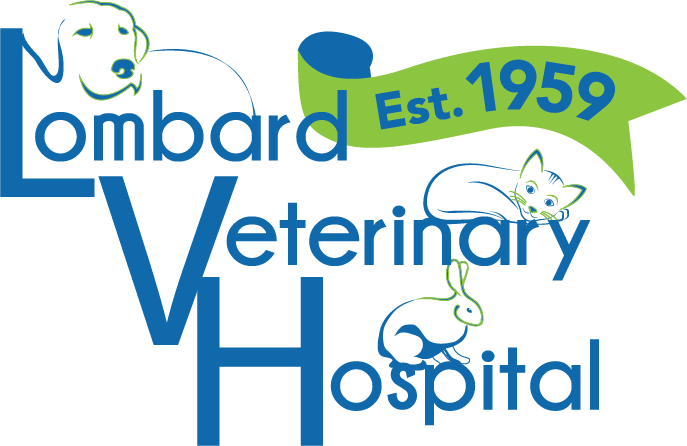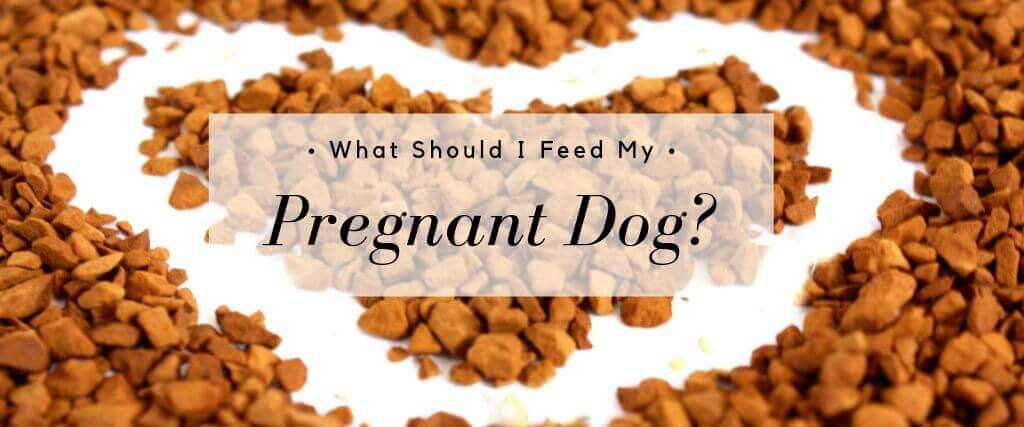We certainly know that good nutrition is key to a healthy metabolism and healthy life for your dog. This is true throughout your dog’s life, but nutritional needs will change if your dog becomes pregnant, and again as she’s nursing her new puppies. Let’s take a look at some general feeding recommendations for pregnant and nursing dogs.
Processing Nutrition During Pregnancy
In the first 2.5 weeks, dog embryos are still held in the oviducts (fallopian tubes), and they actually don’t enter the dog’s uterus to form a placenta and gain their nutrition from their mom’s blood supply until about 17 days after ovulation.
So all of the important nutrients processed by the mom’s digestive tract and broken down into the simplest building blocks of life to be carried in her bloodstream are shared with the babies to as they grow for the next 1.5 months.

For the first 30 to 40 days of gestation, a healthy diet and prevention of exposure to infection and toxins are important because, whatever the mother gets, the babies share. A healthy diet sufficient for an adult is all that is required for them. Any use of medications, including parasite preventatives, should be discussed with your veterinarian to ensure their safety.
Different Stages of Dog Pregnancy Require Different Foods
In the last 2 weeks, most organ development is finished and the babies are now growing quickly. There is a higher demand for nutrients but definitely decreased room in the mother’s abdomen (stomach and intestines to hold it). We advise a transition to a recommended growth/lactation diet to provide the extra nutrients, all while still providing the correct vitamin/micronutrient balance. We’ll talk with you about your dog’s specific needs, but almost every pregnant dog will benefit from smaller, more frequent meals to overcome decreased stomach volume.
We do NOT advise supplementation with vitamin/mineral/other nutrients, except in rare cases of demonstrated nutrient deficiency. Over supplementation can be HARMFUL by unbalancing an already properly balanced diet.
Mom Dog Needs the Most Energy When She is Nursing
The highest demand for energy in the mom dog occurs in the next 8 weeks while she is nursing the puppies. An average litter for a 60-pound dog is 6 to 8 puppies! This dog may be producing milk (a high-calorie food) for far more than her own body weight by the time they reach 4 to 6 weeks of age as the puppies continue to grow and need more milk.

The same growth/lactation diet started in the last 2 weeks of pregnancy should be used during lactation to avoid a finicky appetite and digestive problems from sudden diet changes. She should be fed approximately the same volume as an adult dog of her size immediately after giving birth, but the volume should increase each week up to 4 weeks. The number of puppies will also affect the amount fed. A dog nursing only 1 or 2 puppies will not need a large increase in calories, while a mom nursing 14 puppies may require around the clock feeding to make up the needed extra calories. Again, we can talk with you about your dog’s particular needs - just make an appointment.
Mom Dog's Energy Requirements Decrease as Puppies are Weaned
When puppies start solid food around 4 weeks of age, the feeding amounts to the mom should decrease weekly through weeks 4 to 8 to assist the ending of milk production. Lactation is supported by both the action of nursing from the puppies (they will gradually nurse less if they are getting their calories from solid food) and reducing caloric intake to the mom (fewer building blocks for milk production).
The gradual increases from birth to week 4 helps milk production itself. The reverse - a gradual reduction from weeks 4 to 8 - not only helps end milk production, but helps to prevent mastitis as well. (Mastitis is an infection in the mammary tissue that can be very painful to mom).
Don’t Forget to Consider Nutrition Before Breeding
Breeding should only be permitted in healthy weight dogs as both underweight and overweight conditions can severely impact the mom’s health during pregnancy and delivery. You should always begin a breeding cycle with a discussion of healthy body condition of the potential mom. Low body weight and obesity can also impact fertility, as both conditions may stem from an illness or even result in an inability to form normal eggs and ovulate successfully.
If you would like more information about breeding, nutrition, or your pet’s health in general, please feel free to contact our hospital.

